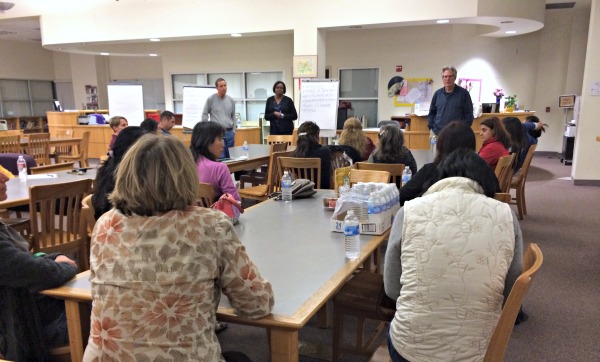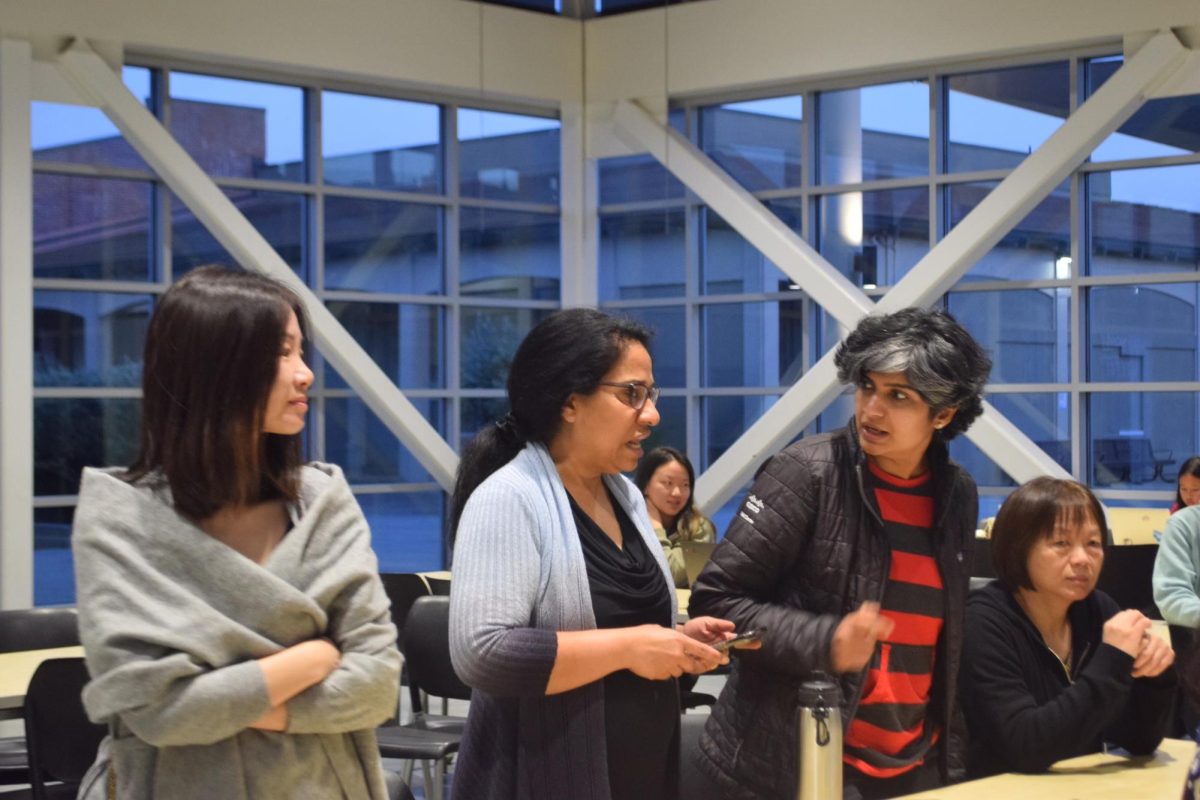PTSA holds Challenge Success meeting on Jan. 14 to introduce program, brainstorm with parents.
“[Stress is] the elephant in the room, and we need to talk about it,” Student Advocate Richard Prinz said. “We need to come together as a family, as a team, and solve it.”
The PTSA held a parent meeting to discuss Challenge Success on Jan. 14 from 7 to 8:30 p.m. in the library. With 17 parents and three staff members in attendance, PTSA president Jim Cunningham and Prinz introduced Challenge Success and asked parents to brainstorm the causes and effects of stress, as well as the positive aspects of MVHS.

Ever since CS Parent Education Program Director Gina Morris presented “The Well-Balanced Student” on April 9, 2013, according to Cunningham, the PTSA has been looking to get MVHS involved in the program. He defines the 10-year old program from Stanford University as “research-oriented solutions on how to reduce student stress and increase student engagement while trying to define what success means over a longer term.” The Aug. 27, 2013 PTSA meeting approved $9,000 of PTSA money, supplemented with $3,000 from the school, to cover the comprehensive CS package. The full package focuses on various programs. A designated coach will meet with the nine-person Challenge Success team of students, parents and staff members four times throughout the year. Challenge Success will also hold two parent education or faculty development presentations. Finally, the Stanford Survey of Adolescent School Experiences will provide implementation and feedback to assess and help set a benchmark.
“We are in the early stages of getting more peoples’ input to see where we can go with [Challenge Success],” Prinz said. “If it means making changes, the school’s interested in that.”
As a result, this is an ongoing project, principal April Scott said. She pointed out that with everyone pointing fingers at each other — students at teachers and parents, teachers at students and parents, and parents at students and teachers, there is no one-shot solution in the nine-month period of time. In fact, there were approximately 40 schools at the fall Challenge Success convention, many of them returning by emphasizing certain parts of the program — such as data gathering or workshops.
[quote_left][Stress is] the elephant in the room, and we need to talk about it. We need to come together as a family, as a team, and solve it.[/quote_left]
“We won’t solve all the problems,” Scott said, “but Challenge Success has ongoing pieces, and we can decide how we want to extend it.”
Prinz emphasized that stress may be rooted in the pressure of college applications and in MVHS’s high achieving status, but he also posed a question: Do we need to buy into it?
He explained that Challenge Success co-founder Denise Pope’s book “Doing School” showed that students are just trying to get A’s rather than being engaged learners and developing socially and emotionally, resulting in stories of students being unprepared in college.
“Everyone needs to learn about their own mind, and how it works,” Prinz said. “Not just about subject matter because your mind is with you wherever you go. What assumptions we have, what our beliefs are, and whether they’re leading to health and well-being.”
Here is a look at the brainstorm from the session:
“I think the parents who were here were all engaged in the topic of discussion, and it sounds like a lot of us are on the same page with our concerns for our students, concerns, worries and desires to have happy kids,” parent Gail Marzolf said. “And for school not to take a toll on that happiness.”














